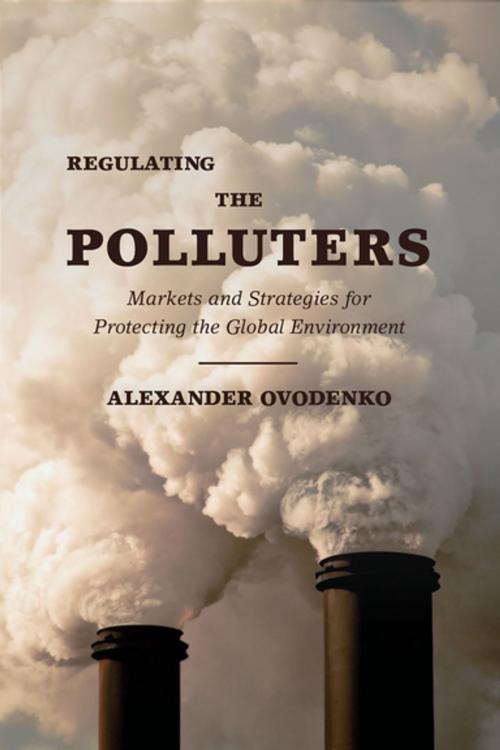Regulating the Polluters
Markets and Strategies for Protecting the Global Environment
Nonfiction, Social & Cultural Studies, Political Science, Government, Public Policy, Politics, History & Theory| Author: | Alexander Ovodenko | ISBN: | 9780190677749 |
| Publisher: | Oxford University Press | Publication: | August 15, 2017 |
| Imprint: | Oxford University Press | Language: | English |
| Author: | Alexander Ovodenko |
| ISBN: | 9780190677749 |
| Publisher: | Oxford University Press |
| Publication: | August 15, 2017 |
| Imprint: | Oxford University Press |
| Language: | English |
National governments and private stakeholders have long recognized that protecting the global environment requires international cooperation. Climate change, tropical deforestation, biodiversity loss, ozone depletion, hazardous wastes, and ocean pollution are among several issues that have brought national governments together in common purpose. As they have worked to mitigate these global problems, governments have developed a wide variety of environmental regime designs. Some global environmental regimes are more institutionally integrated than others. Some regimes impose legally binding obligations on countries while others involve non-binding commitments. And some regimes involve global standards and rules while others leave national commitments up to countries' discretion. What explains the pattern of regime design in global environmental governance? Alexander Ovodenko demonstrates that national governments have developed different institutional responses to global issues because the markets producing environmental pollution impose varying constraints and create varying opportunities for governments. Contrary to the prevailing literature, governments are more inclined to impose stringent rules and regulations on oligopolistic industries than on competitive ones. The capital resources and innovation potential of oligopolistic businesses make them more cost-effective and economical in reducing pollution and meeting global standards than businesses in competitive industries. In global governance, oligopolistic businesses face a "double-edged sword" arising from their wealth and market concentrations. Regulating the Polluters inverts the literature on regulatory capture and collective action by presenting empirical evidence of the irony of market power in global environmental politics.
National governments and private stakeholders have long recognized that protecting the global environment requires international cooperation. Climate change, tropical deforestation, biodiversity loss, ozone depletion, hazardous wastes, and ocean pollution are among several issues that have brought national governments together in common purpose. As they have worked to mitigate these global problems, governments have developed a wide variety of environmental regime designs. Some global environmental regimes are more institutionally integrated than others. Some regimes impose legally binding obligations on countries while others involve non-binding commitments. And some regimes involve global standards and rules while others leave national commitments up to countries' discretion. What explains the pattern of regime design in global environmental governance? Alexander Ovodenko demonstrates that national governments have developed different institutional responses to global issues because the markets producing environmental pollution impose varying constraints and create varying opportunities for governments. Contrary to the prevailing literature, governments are more inclined to impose stringent rules and regulations on oligopolistic industries than on competitive ones. The capital resources and innovation potential of oligopolistic businesses make them more cost-effective and economical in reducing pollution and meeting global standards than businesses in competitive industries. In global governance, oligopolistic businesses face a "double-edged sword" arising from their wealth and market concentrations. Regulating the Polluters inverts the literature on regulatory capture and collective action by presenting empirical evidence of the irony of market power in global environmental politics.















